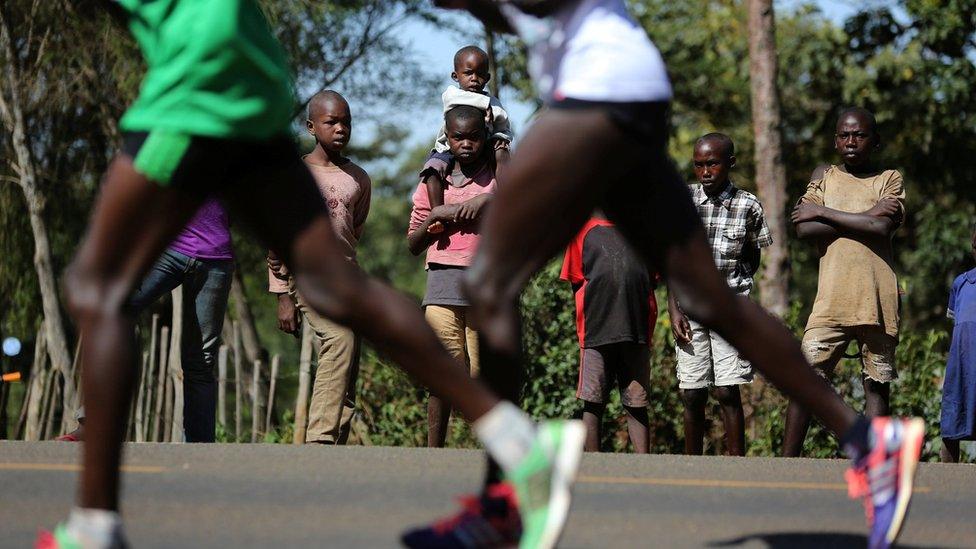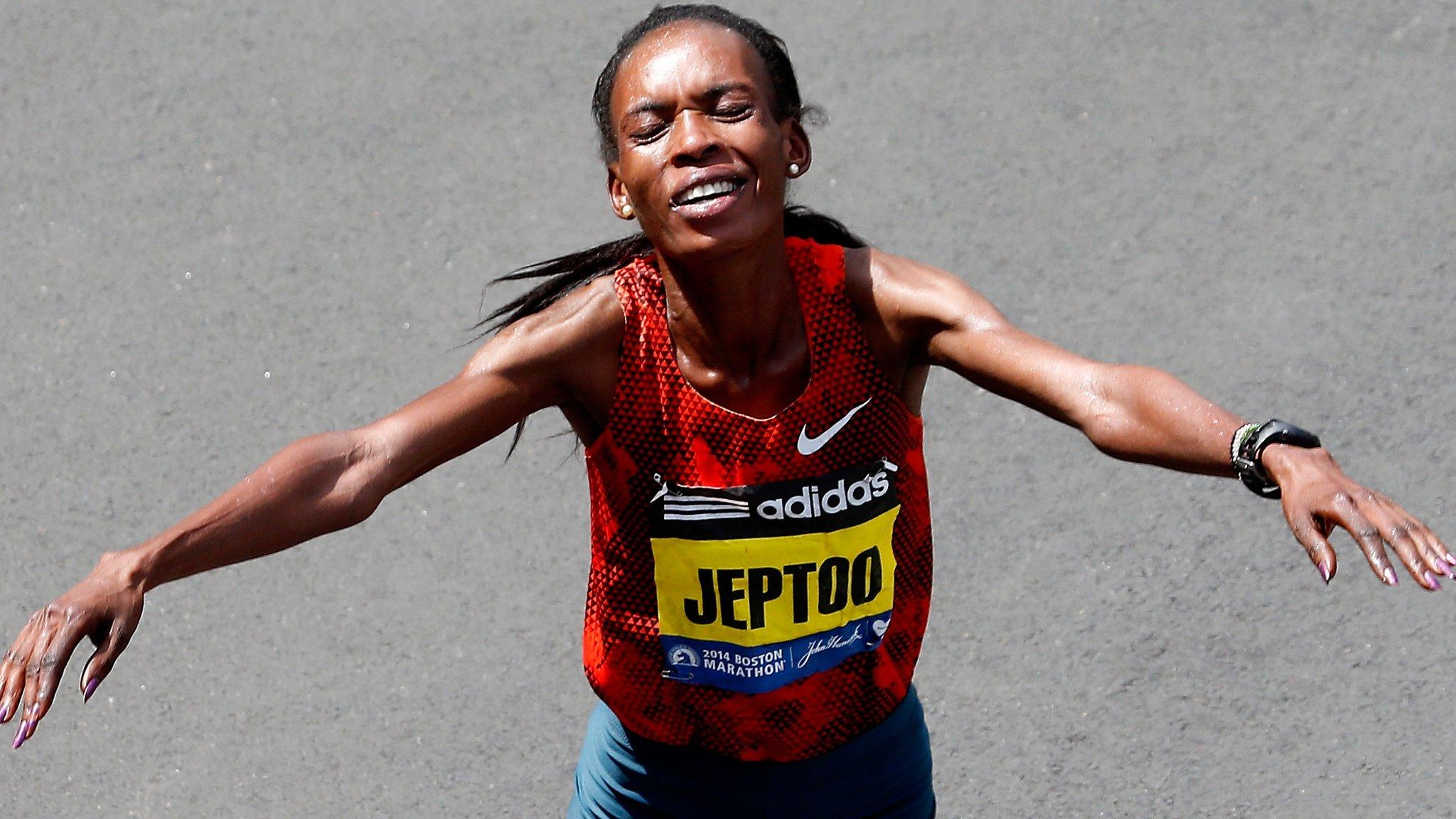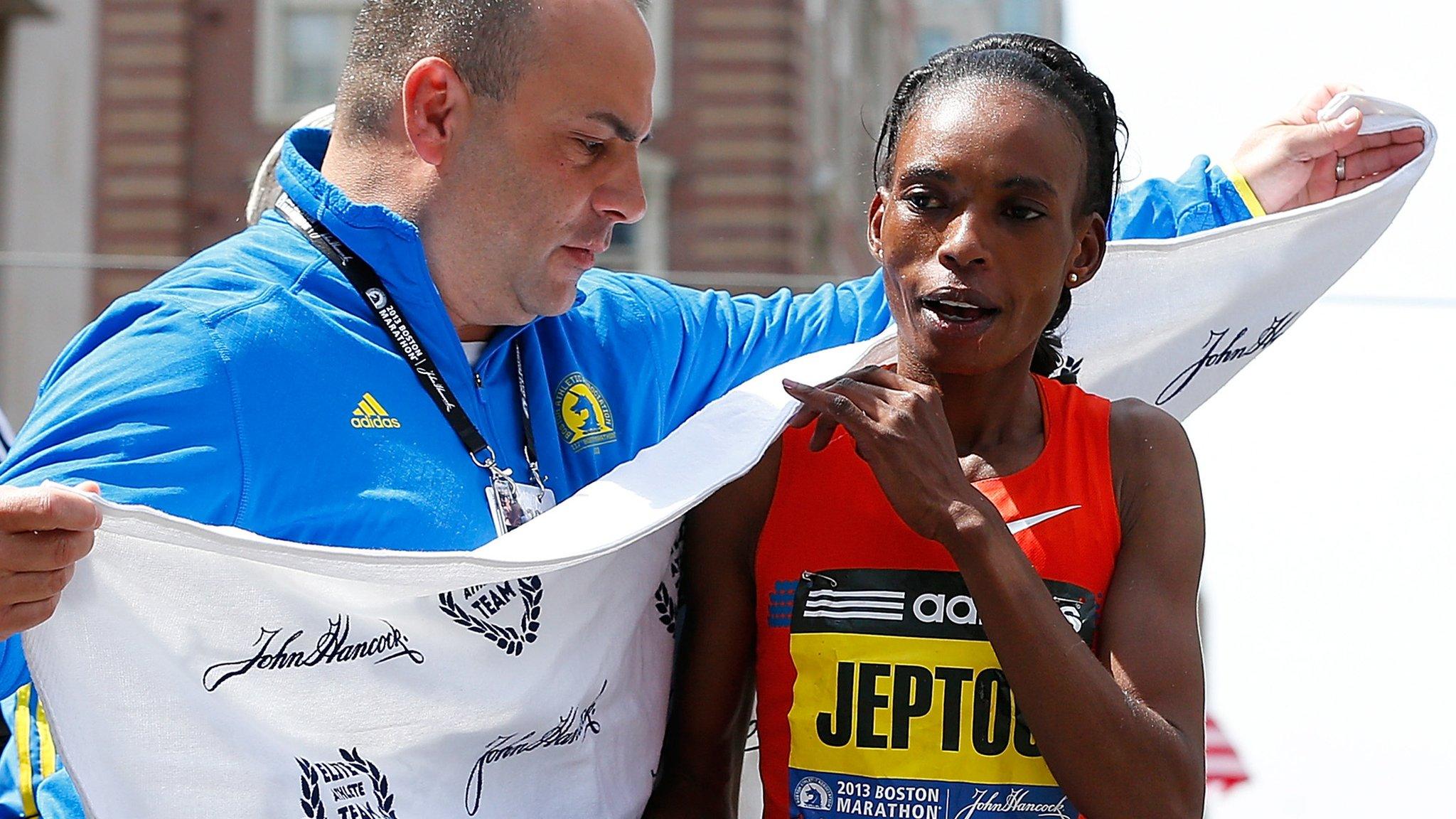Kenya changes anti-doping laws in bid to avoid Olympic ban
- Published

Kenya's success in athletics is a source of national pride
Kenya's parliament has approved changes to anti-doping legislation in the hope of avoiding a ban on its athletes attending the Olympic Games in Rio.
New anti-doping measures were signed into law last month but the World Anti-Doping Agency (Wada) later said they fell short of international standards.
MPs were recalled for special sitting on Thursday to push changes through.
If Kenya were to be excluded from the Games, some of the world's top athletes would miss out on medal chances.
The country topped the medal table at the 2015 World Athletics Championships in Beijing with seven gold medals.
"Sport is very critical to this country and the athletes have added a lot of value in this country in terms of marketing," opposition MP Chris Wamalwa told parliament.
The new legislation must be approved by the Senate before being signed into law by President Uhuru Kenyatta.

Kenyan runner Rita Jeptoo failed a doping test in 2014
Wada had demanded changes after a spate of drugs scandals involving Kenyan athletes.
Since 2011, more than 40 of its athletes have failed drugs tests.
As of January 2016, 18 Kenyan athletes were suspended for doping. The best known is Rita Jeptoo, who won the Boston and Chicago marathons.
Last November, former Wada president Dick Pound said it was "pretty clear that there are a lot of performance-enhancing drugs being used" in Kenya.
In April, Kenya introduced new criminal laws as part of an anti-doping bill, creating a national testing authority and making doping an offence punishable by imprisonment.
It was widely assumed that the measures would satisfy Wada but the agency later cited "inconsistencies" in the legislation and declared Kenya "non-compliant" on 12 May.
- Attribution
- Published12 May 2016

- Attribution
- Published12 February 2016

- Attribution
- Published11 February 2016
